Dark legacy of the anti-Israel rallies
Aat the conclusion of a massive pro-Palestinian rally at London’s Trafalgar Square, a convoy of cars packed with young men headed for the north London suburb of Golders Green, home to a large propor-tion of the city’s Jewish community. The men were filmed bearing Palestinian flags and shouting ‘F— the Jews, rape their daughters,’ through loudspeakers.
During the rally itself, cries of ‘oh Jews, the army of Mohammed is returning’ were recorded. Barbara Rich, a barrister and member of the London Jewish community said she ‘had never felt the proximity of ancient hatred here so strongly as today’. Rich knows ancient hatred well as the daughter of a mother who survived the Holocaust and a father who fled the pogroms in Russia.
In Montreal, a small pro-Israel gathering was broken up by protesters who hurled rocks and shouted antise-mitic slogans. In Toronto, a man with
an Israeli flag was hospitalised after being severely beaten by a group of at least a dozen men with sticks. A young woman reported being sexually assault-ed at the scene.
In the past few weeks, Jews have also been attacked on the streets of New York and Los Angeles by pro-Palestinian activists. Amid the vio-lence, celebrities and public figures are beginning to rethink their hysteri-cal reaction to Israel’s latest clash with Hamas. The actor Mark Ruffalo who had accused Israel of ‘genocide’ over the civilian death toll in Gaza, which is around 100, subsequently apologised for his remarks, calling them ‘inaccurate, inflammatory and disrespectful’ and acknowledging they could have been used to ‘justify antisemitism [in the US] and abroad’.
In an obviously coordinated response, several high-profile Democrats from the party’s hard left paused their condemnations of Israel and expressions of intersectional sympathies with the Palestinians to issue statements condemning antisemitism along with Islamophobia, a perplexing response given that it is Jews and not Muslims hat are reeling from violent assaults.
Australia has to date been spared the opinions of pop stars and athletes on how Israel and Hamas should conduct them-selves in their periodic confrontations. But the incitement and public hatred has been evident nonetheless. At rallies in Sydney, protesters displayed the flags of the Lebanese group Hezbollah, whose external security wing is a designated terrorist organisation, which has routinely carried out antisemitic terrorist attacks abroad, including the bombing of the Jewish community centre in Buenos Aires in 1994 which left 85 people dead. Anti-semitic placards, many with swastikas, abounded in rallies throughout the country. In Melbourne, a peaceful pro-Israel gathering proceeded despite a stream of online threats by those expressing solidarity with the Palestinians, including calls to ‘bring AK-47s’.
Attacks on Jewish targets in Australia have long coincided with escalations in the Middle East. In March 1991, the Bankstown and District War Memorial Synagogue in Sydney was virtually destroyed by arson. The attack was one of five incidents of arson and firebombing of synagogues and a childcare centre in Sydney over a five-month period.
The attacks were believed to have been the outgrowth of a sharp spike in antisemitism in Australia during the Gulf War. Though Israel played no part, save for being the subject of Scud missiles from Iraq and threats by Saddam Hussein to unleash chemical weapons on its population, a general feeling of anti-Western and anti-imperialist sentiment permeated through the anti-war movement. As history has long demonstrated, anti-anything in uncontained doses has a tendency to become antisemitism before too long.
The 2008 Gaza War led to a three-fold increase in incidents of antisemitism in Australia. Protestors at Palestinian solidarity rallies chanted ‘bomb the Jews’ and banners asserted that the Jews ‘deserved the Holocaust’. Around the time of the last major Gaza conflict, in 2014, at a Perth shopping centre a visiting Rabbi from Jerusalem and his assistant were set upon by six teenagers threatening to ‘fix [them] up’ for ‘killing babies in Gaza’. In Sydney, eight teenagers boarded a school bus servicing three Jewish schools and threatened to ‘slit the throats’ of thirty terrified primary school children aged between 5 and 12, while shouting ‘free Palestine’, ‘Heil Hitler’ and ‘all Jews must die’. The words ‘Zionist scum’ were daubed on the wall of a Perth Jewish school.
Scenes of carnage from the Middle East have long animated the Australian public. The smouldering carcasses of Israeli passenger buses during the second intifada, the wails of air raid sirens, the roar of fighter jets, the scrambling of families to find shelter or to recover their dead. Public demonstrations can serve as a potent release of empathy to such events. Yet they can also reveal the worst of a movement; the sinister elements that reside within it, that seek to exploit popular outrage or grief to advance unconnected, long held views that are dangerous and abhorrent. Political and community leaders have the obligation of keeping legitimate peaceful protest from escalating into these extremes, and to prevent the introduction of the hatreds and violence of overseas conflicts into Australia.
The capacity of Australians to impact the hostility between the state of Israel and the Palestinian militants that seek its destruction, is limited. The clash of religious and nationalist movements and the power plays of rival factions and politicians are hardly susceptible to being modified by sentiments expressed on Australian streets 14,000kms away. But as the latest escalation ends in another uneasy truce, the manner in which the conflict has been reported, the words of public figures and the slogans of banners and flags of terrorist organisations directed by Australians to Australians will linger and the fabric of our cohesion, our shared freedoms to live in peace and stability may be irrevocably frayed.
Got something to add? Join the discussion and comment below.
Get 10 issues for just $10
Subscribe to The Spectator Australia today for the next 10 magazine issues, plus full online access, for just $10.
Alex Ryvchin is the Co-Chief Execu-tive Officer of the Executive Council of Australian Jewry
You might disagree with half of it, but you’ll enjoy reading all of it. Try your first month for free, then just $2 a week for the remainder of your first year.

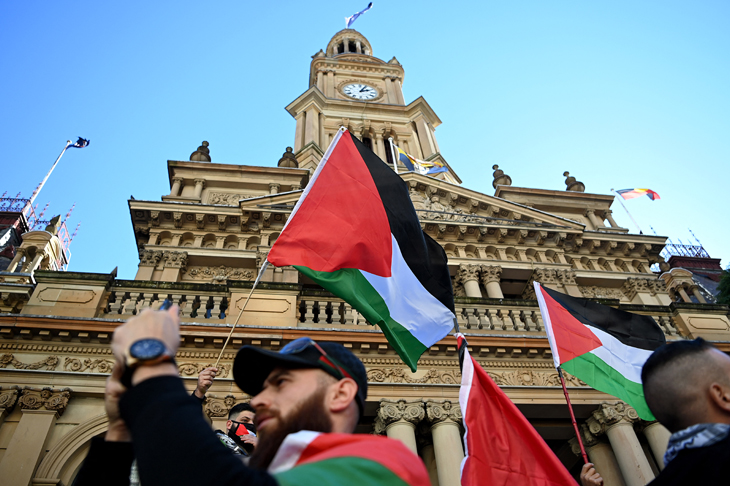
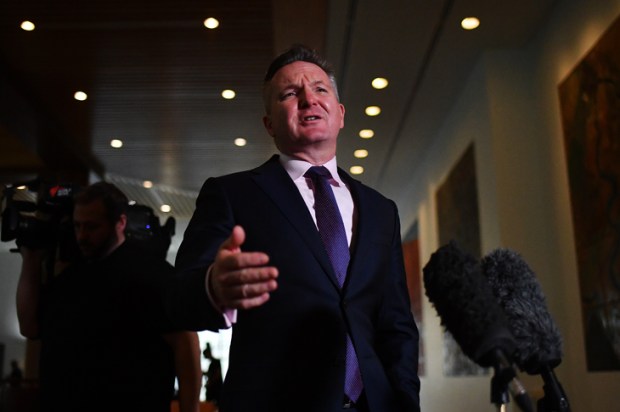
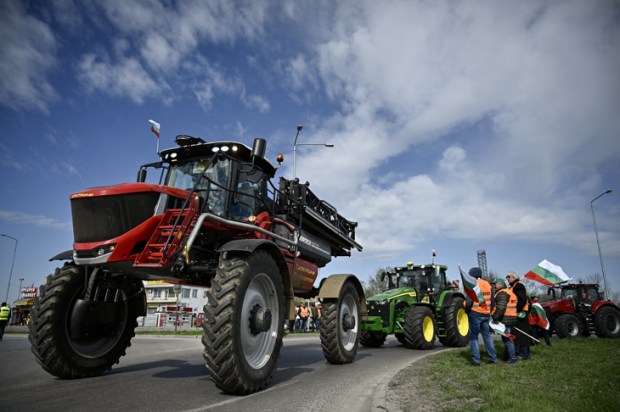
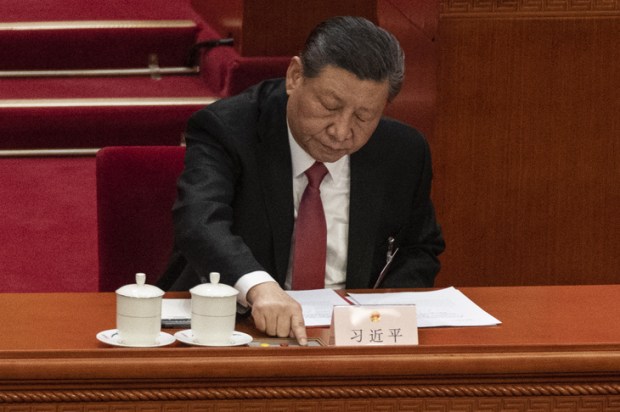
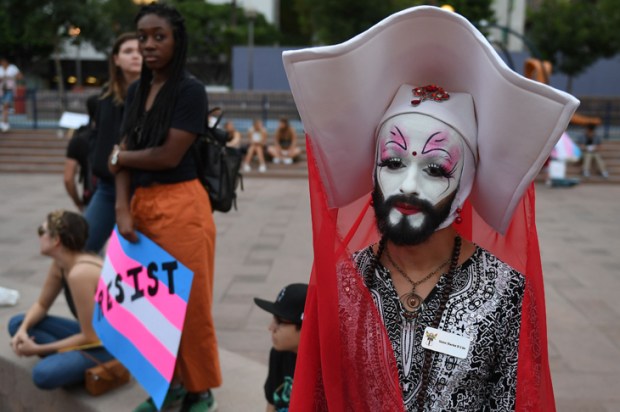
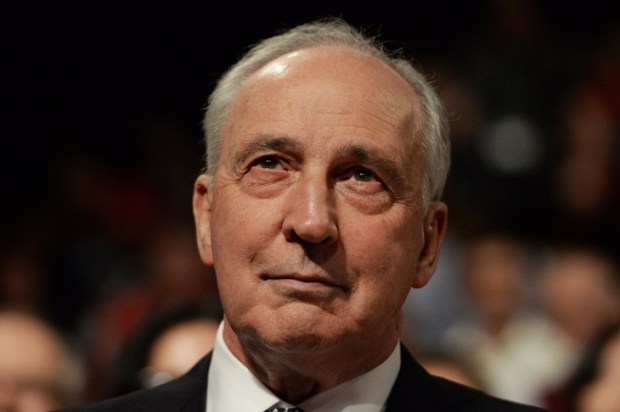
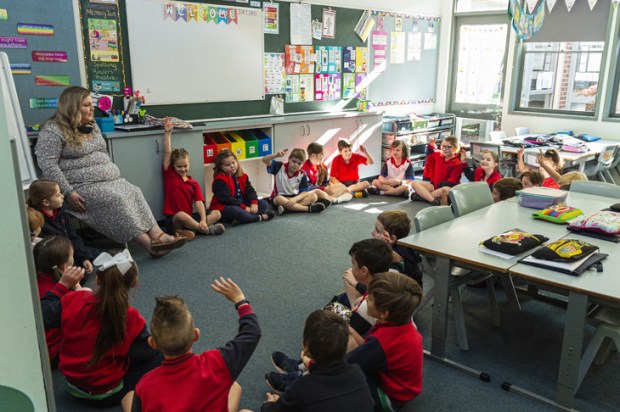






Comments
Don't miss out
Join the conversation with other Spectator Australia readers. Subscribe to leave a comment.
SUBSCRIBEAlready a subscriber? Log in